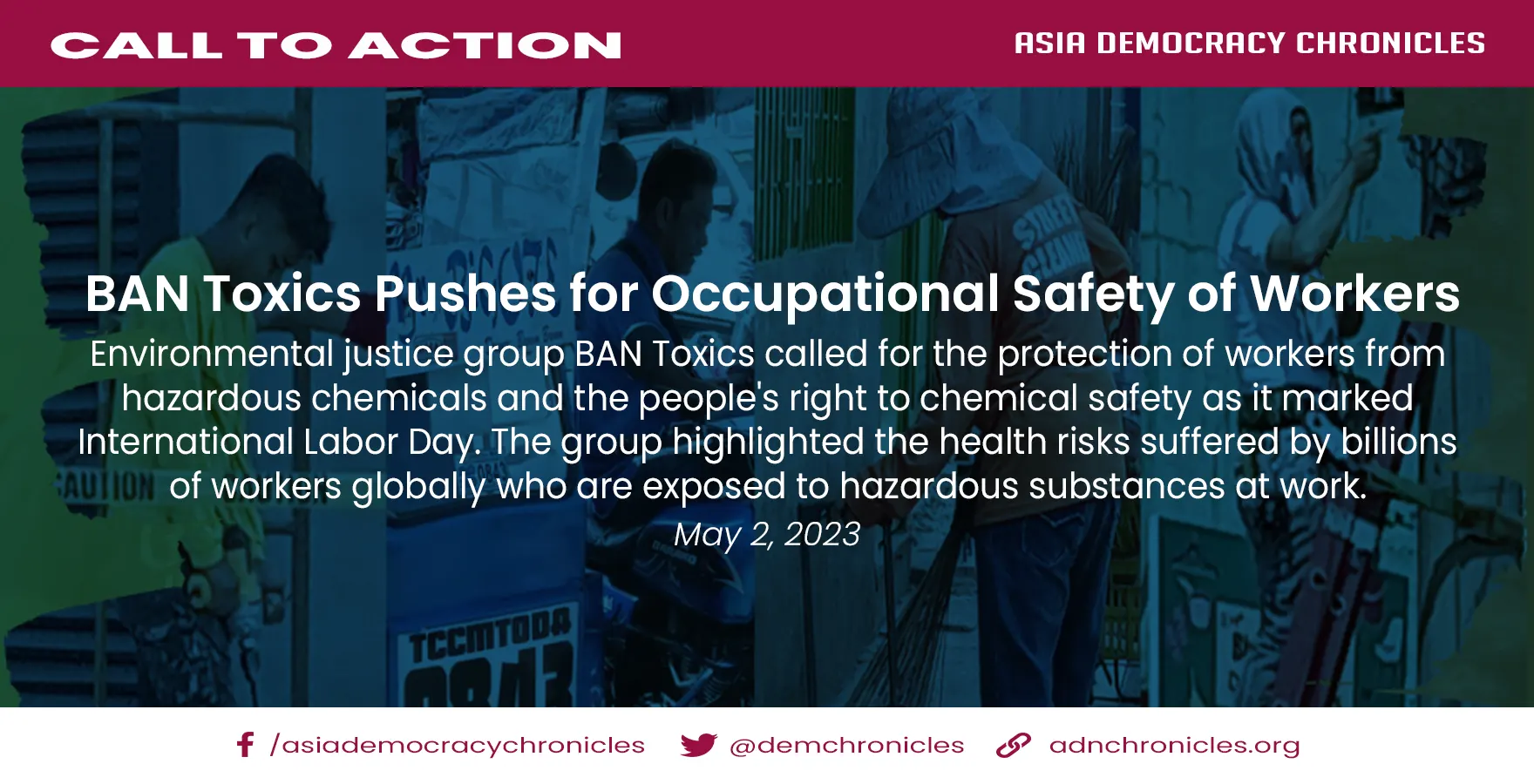|
Getting your Trinity Audio player ready...
|
2 May 2023
Environmental justice group BAN Toxics highlights workers’ occupational exposure to toxic chemicals and calls for the protection and advancement of the people’s right to chemical safety as the world celebrates International Labor Day.
As the production and use of chemicals increase yearly, the impacts of hazardous chemicals on workers especially in low- and middle-income countries is a growing concern as the risks of significant health effects increase.
According to the International Labor Organization (ILO), over a billion workers globally are exposed to hazardous substances in the world of work, with an estimated of almost one million workers losing their lives each year. Health effects include cardiovascular disease, cancers, and respiratory diseases among others.
Asbestos, silica, heavy metals, solvents, dyes, manufactured nanomaterials, perfluorinated chemicals, endocrine disrupting chemicals, pesticides, and workplace air pollution are the top chemical exposures while data does not exist for the great majority of chemicals, according to the ILO report. The Philippine Statistics Authority survey documented 54,551 cases of occupational diseases in establishments in the country in 2019.
“It is paramount that existing regulations on chemical safety including toxics elimination and substitution in products, product labeling, and accountability of manufacturers from the production, reuse, recycling, and disposal of their commodities are strictly implemented to protect workers from chemical hazards and reduce the incidence of chemically-induced accidents, illnesses and injuries, and death resulting in the use of chemicals at work,” said Thony Dizon, Toxics Campaigner of BAN Toxics.
“We don’t want any industrial accidents such as the Beirut port explosion of ammonium nitrate in 2020 that killed 218 people and injured more than 7,000. ”
“The protection of workers from hazardous chemicals is essential, long recognized in ILO conventions. Yet, there is still the need for authorities to address regulatory gaps in chemical safety and strict implementation and the industries to guarantee chemical safety of their employees and take responsibility,” he added.
The Department of Labor and Employment released the guidelines for the implementation of Globally Harmonised System in chemical safety programs in the workplace under D.O. No. 136-14 in 2014.
BAN Toxics urged the Commission on Human Rights to update its eight-year-old Human Rights Agenda on Chemical Safety taking into consideration the lifecycle approach, precautionary principle, and the public’s right to know and meaningful participation.
Management of chemicals in the country is governed by the Toxics Substances and Hazardous and Nuclear Wastes Control Act of 1990 (RA 6969) and Implementing Rules and Regulations (DAO 29) released by the DENR. #
References:



















